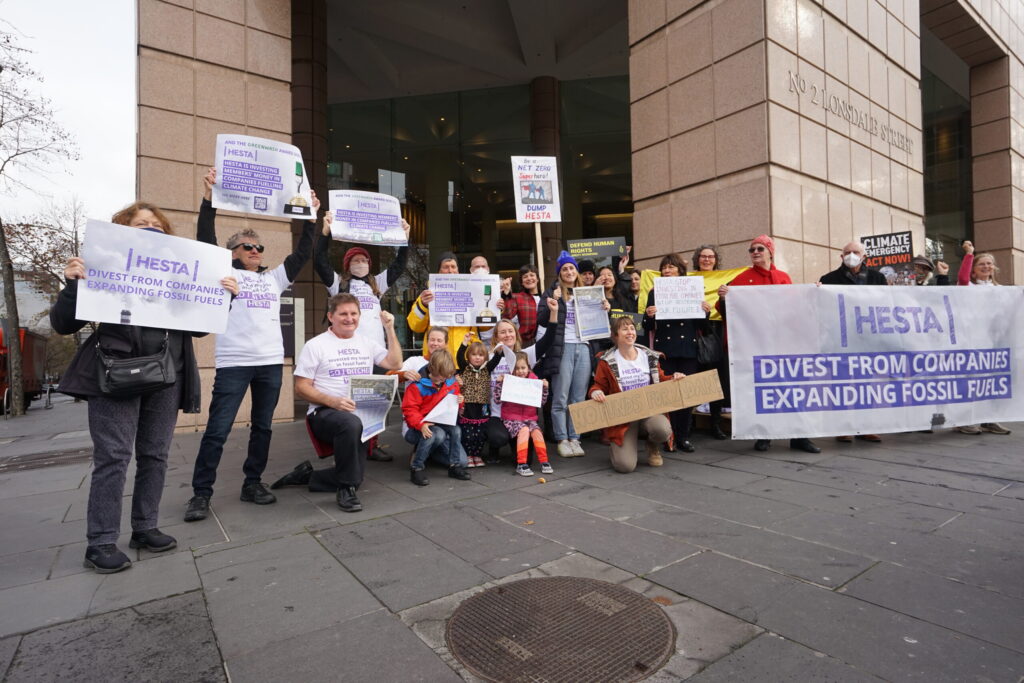Woodside investor HESTA Calls for New Directors With Climate Skills

|
Listen to this story:
|
HESTA, one of Australia’s largest superannuation funds, is making waves by proposing its own nominees for the board of directors at oil and gas giant Woodside Energy. This unprecedented move comes amid mounting pressure from environmental groups and activist investors who are critical of Woodside’s climate goals and investment plans.
HESTA, with a stake of less than 1% in Woodside, has been urging the company to strengthen its climate action plan. They’ve placed Woodside on notice, demanding an improved emissions reduction strategy or potentially facing divestment. The fund believes Woodside needs to prioritize adding new energy and business transformation specialists to its board. “We believe ongoing strong governance, culture and capabilities are required for the company to thrive through the energy transition and be well-placed for a low-carbon future,” HESTA said in a statement.
Woodside, facing criticism for its plans to invest in new projects while aiming for a 15% emissions reduction by 2025, has acknowledged investor concerns. The company’s CEO, Meg O’Neill, has actively engaged with investors and is undertaking a board renewal process. However, previous appointments have been met with disapproval for not demonstrating a strong commitment to decarbonization. Woodside chairman Richard Goyder said the company had been “extensively engaged and listened carefully to feedback from our shareholders, who have asked for more detailed information about our climate action plans and the role of gas in a lower carbon world.”
HESTA’s move is seen as a potential tipping point for super fund influence on board composition in Australia. While some industry leaders welcome the long-term perspective that super funds bring, others raise concerns about potential conflicts of interest and how such influence might affect boardroom dynamics. Mr Goyder said Woodside had been working hard “to ensure the board has the capabilities which support the challenges, opportunities and culture which we are facing into and want to build.“
The success of HESTA’s nominees remains to be seen. However, their push for climate-focused leadership at Woodside signifies a growing demand for accountability on climate action within the energy sector. This could have far-reaching implications, prompting other energy companies to re-evaluate their boards and strategies in light of increasing pressure to transition towards a more sustainable future.
Beyond HESTA: A Growing Movement
HESTA’s action is part of a broader trend of super funds flexing their muscle on environmental issues. With trillions of dollars in assets under management, super funds have a significant financial stake in the success of the companies they invest in. This financial clout, coupled with a growing focus on environmental, social, and governance (ESG) factors, is leading super funds to take a more active role in pressuring companies to improve their sustainability practices.
Investor Pressures and the Future of Woodside
The pressure from HESTA and other investors is likely to continue to mount on Woodside. With Woodside’s current climate targets being labelled “meaningless” and lacking credibility by environmental groups, the company faces the risk of losing investor confidence and hindering its ability to attract capital for future projects.
“We have engaged extensively and listened carefully to feedback from our shareholders, who have asked for more detailed information about our climate action plans and the role of gas in a lower carbon world,” Woodside CEO Meg O’Neill said at an investor briefing. “We’ve spent a lot of time since that last climate vote meeting with investors really listening to understand what was it about our last report that left them unsatisfied,” she added.
This pressure could force Woodside to accelerate its transition plans. The company may need to consider more ambitious emissions reduction targets, greater investment in renewable energy sources, and potentially even divestment from some of its existing fossil fuel assets.
Related Article: Mark Burgess Chairman of HESTA with Matt Bird at Greenwich Economic Forum
The outcome of this clash between HESTA and Woodside will be closely watched by the energy sector and beyond. It could set a precedent for how super funds and investors can influence companies on climate action, shaping the future of the energy industry.






